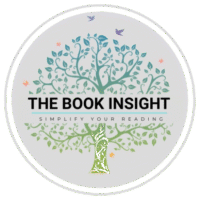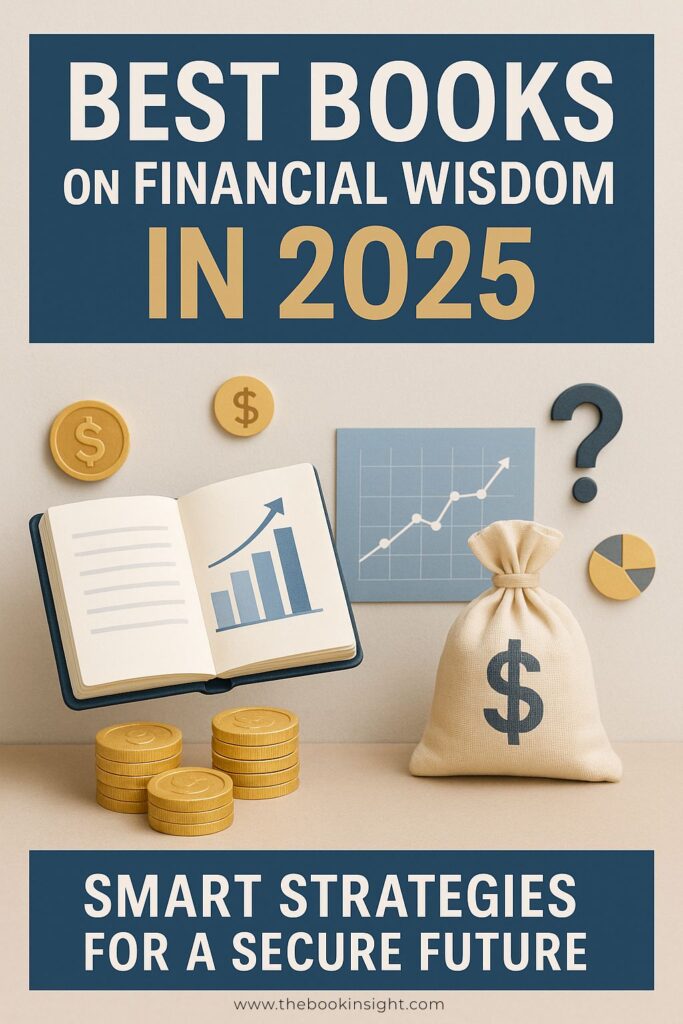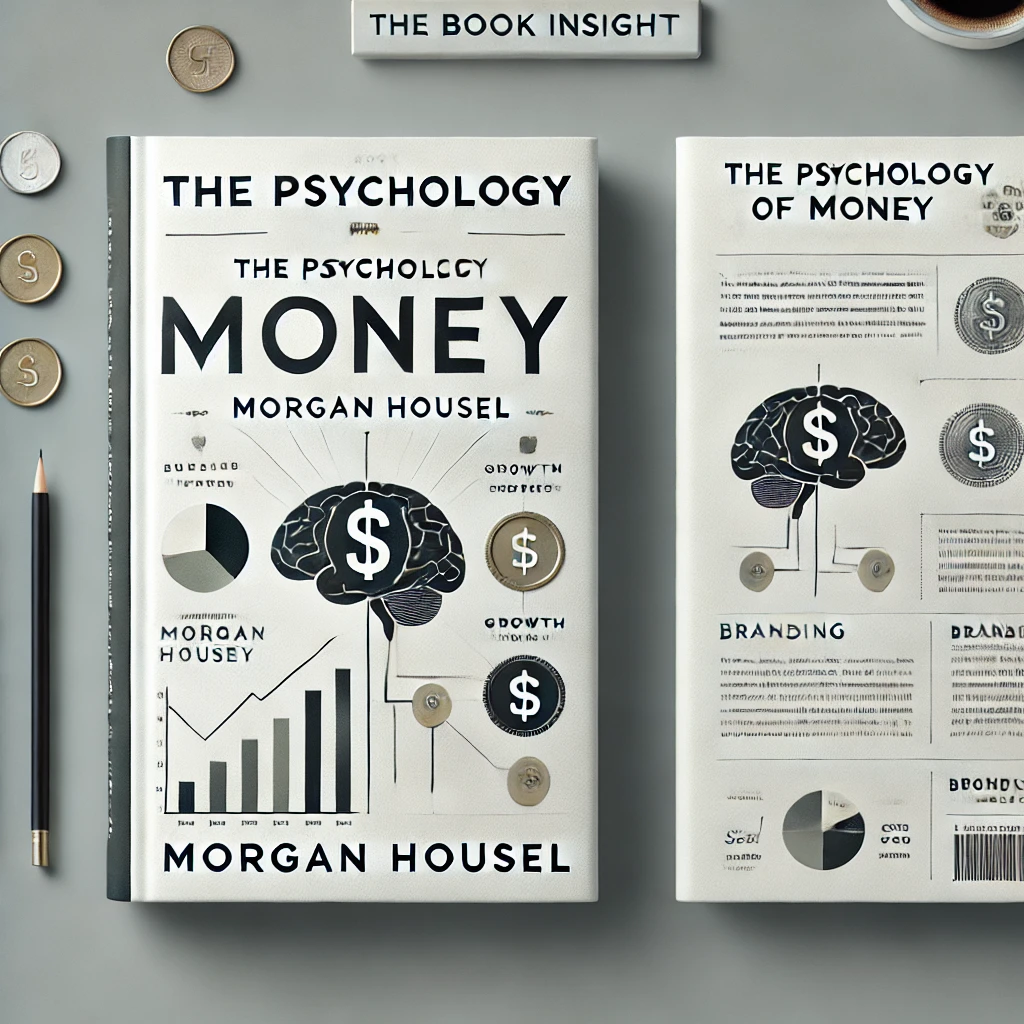Table of Contents
ToggleWhy Financial Wisdom Is Your Best Shield in 2025?
In today’s fast-paced world, managing money has become one of the biggest challenges for most of us. Rising living costs, increasing wealth inequality, and economic uncertainty have made financial stability harder to achieve. A recent survey by PwC (2024) revealed that 63% of adults feel stressed about their finances, while inflation and unstable job markets have pushed many into living paycheck-to-paycheck.
In the 21st century, we wake up every morning to compete—not just for success—but for financial survival. It’s no longer enough to simply earn and spend money. To secure a comfortable future, we must learn how to save, invest, and grow wealth strategically. Unfortunately, these skills are not taught in schools, which is why books become our best teachers.
The right financial books go beyond theory. They offer proven strategies, real-world lessons, and practical tips—from budgeting and smart investing to building a wealth mindset. For example, books like The Psychology of Money teach why managing emotions matters as much as managing money, while classics like Rich Dad Poor Dad break down how assets and liabilities define financial freedom.
This article brings you the best books on financial wisdom in 2025—covering everything from mastering budgeting to understanding crypto and long-term investing. In an era of inflation, side hustles, and fast-changing markets, understanding money is no longer optional—these books will show you how to thrive.
Why Financial Wisdom Matters in 2025?
1. Economic Instability (Uncertainty Is the New Normal)
We are living in an uncertain world. Economies can look stable and then suddenly face shocks—poor policy decisions, external debt pressure, inflation spikes, or currency weakness. We’ve already seen countries like Sri Lanka and Pakistan experience serious economic stress in recent years. When governments lack long‑term financial discipline, the public pays the price through rising living costs and reduced opportunity.
Personal lesson: We cannot control national decisions, but we can build personal financial resilience—emergency fund, diversified income, controlled spending.
Optional stat to insert: “(e.g., Inflation in many emerging markets crossed X% in 2024.)” – tell me if you want me to fetch a current figure.
2. The Rise of Digital Finance (Empowerment + Overload)
Technology has made money education easier and noisier at the same time. Budget apps (like Mint, YNAB, PocketGuard), investment platforms, robo‑advisors, UPI / instant transfers, and learning content are everywhere. Real‑time dashboards let anyone track spending, savings, and investments within seconds.
The benefit: You can now see where every rupee/dollar goes and correct mistakes early.
The risk: Constant comparison, hype (get‑rich-quick noise, meme coins), and decision fatigue.
Financial wisdom means using tools as helpers, not letting them drive impulsive choices.
3. Debt & Poor Money Habits Among Young Adults
The world has become debt‑driven: student loans, credit cards, buy‑now-pay‑later, personal loans. Without understanding compound interest, minimum payment traps, and true cost of borrowing, people drift into silent financial stress.
Good financial wisdom teaches you to:
- Read loan terms before signing.
- Prioritize high‑interest debt payoff (debt avalanche or snowball method).
- Avoid lifestyle inflation when income rises.
- Build credit without drowning in EMIs.
Optional stat placeholder: “Average credit card interest rates in 2024 hovered around X%.” (I can look this up for accuracy if you want.)
4. Money Knowledge = Freedom & Peace of Mind
Financial wisdom is not just “more money.” It is freedom from constant anxiety:
- Freedom from being stuck in a job only because of bills.
- Freedom to say “no” to toxic work environments.
- Ability to fund learning, support family, or start a side venture.
As Robert Kiyosaki teaches: understand assets vs. liabilities so you don’t stay trapped in the 9–5 cycle forever. As Darren Hardy shows in The Compound Effect, small daily financial decisions (saving, investing, tracking) compound into long‑term freedom. When you manage money intentionally, you also protect your mental wellness.
5. Mindset Shift: From Just Earning to Managing & Growing
Most people are taught how to earn, not how to keep and grow money. Books fill this education gap. They teach:
- How to build multiple income streams (not overnight—patiently).
- How to invest regularly instead of timing the market.
- How to align spending with values (not impulse or social pressure).
6. Why Books Still Matter (Even in an AI & Crypto Era)
AI tools, trending reels, and “hot tips” come and go. Solid financial books give you principles—so you are not shaken by hype cycles (crypto spikes, speculative stocks, quick “passive income” promises). Principles outlive trends. In a world of inflation, side hustles, algorithmic trading, and digital payment revolutions, understanding money is no longer optional—it’s survival plus opportunity.
Quick Summary (Reader Snapshot)
Challenge | Without Financial Wisdom | With Financial Wisdom |
Rising costs | Stress, paycheck-to-paycheck | Budgeting + inflation hedging |
Debt overload | EMIs dominate cash flow | Structured payoff strategy |
Digital finance noise | Hype-driven decisions | Tool-assisted discipline |
Lack of investing plan | Idle or eroding savings | Compounding growth |
Job dependency | Financial fear | Career + optional side income |
Emotional money stress | Anxiety & impulsive spending | Calm + intentional choices |
What is the criteria for selecting the best books on financial wisdom 2025?
The books in this list are handpicked for their clarity, relevance, and practical tools that can be applied in real life. Whether you’re just starting your financial journey or are already managing investments, these books offer timeless strategies that work across all levels.
From students looking to understand the basics (Rich Dad Poor Dad) to professionals seeking advanced wealth-building tactics (The Millionaire Fastlane), these books bridge every stage of financial growth. Each recommendation blends real-world experiences, psychology, and actionable techniques to help you make smarter money decisions.
Top 7 Financial Wisdom Books to Read in 2025
Financial success starts with understanding the right principles — and these books provide actionable frameworks for building wealth, managing money, and developing the right financial mindset.
1. The Psychology of Money – Morgan Housel
- Core Focus: Understanding the emotional and behavioral side of money.
- Key Takeaway: True wealth is not about numbers but about making smarter decisions through patience and consistency.
- Ideal For: Readers who want to master the psychology behind money management.
- Read More: The Psychology of Money Summary
2. Rich Dad Poor Dad – Robert Kiyosaki
- Core Focus: The difference between working for money and making money work for you.
- Key Takeaway: Build assets, not just income. Learn the power of financial literacy and investing early.
- Ideal For: Beginners, students, and anyone looking to shift their financial mindset.
- Read More: Rich Dad Poor Dad Summary
3. The Millionaire Fastlane – MJ DeMarco
- Core Focus: Creating wealth through entrepreneurship and value-driven ventures rather than slow, traditional methods.
- Key Takeaway: Stop following the “get rich slowly” formula and build scalable systems that create exponential wealth.
- Ideal For: Entrepreneurs and professionals seeking financial freedom faster.
- Read More: The Millionaire Fastlane Summary
4. Your Money or Your Life – Vicki Robin
- Core Focus: Redefining your relationship with money to achieve financial independence.
- Key Takeaway: Every dollar spent is a trade-off of your life energy—spend wisely and live intentionally.
- Ideal For: People looking for budgeting tools and a minimalist approach to wealth.
5. Think and Grow Rich – Napoleon Hill (Timeless Classic)
- Core Focus: Harnessing the power of thoughts and visualization to achieve success.
- Key Takeaway: Success starts with desire, belief, and persistence. Money follows a strong, purpose-driven mindset.
- Ideal For: Anyone seeking motivation and success principles that stand the test of time.
6. I Will Teach You to Be Rich – Ramit Sethi
- Core Focus: Practical money management, investing, and building an automated financial system.
- Key Takeaway: Set up automatic saving, smart investing, and guilt-free spending while still building wealth.
- Ideal For: Young professionals and those looking to fix money habits fast.
7. The Millionaire Next Door – Thomas J. Stanley, Ph.D.
- Core Focus: Habits and behaviors of self-made millionaires.
- Key Takeaway: Wealthy people live below their means, save aggressively, and invest smartly.
- Ideal For: Anyone who wants to understand what truly builds wealth over decades.
- Read More: The Millionaire Next Door Summary
Optional Long-Term Read:
*The Compound Effect – Darren Hardy
- Core Focus: Small, consistent actions compound into massive results—financially and personally.
- Key Takeaway: Your financial habits, no matter how small, determine your future wealth.
- Ideal For: Readers who value slow, steady, and guaranteed financial growth.
- Read More: The Compound Effect Summary
Key Financial Lessons You’ll Learn
Understanding Compound Growth
Compound growth is like planting a small tree today and watching it grow into a massive forest over the years. It’s the principle where your money earns interest, and that interest itself earns more interest over time. For example, if you invest ₹10,000 at 10% annual returns, in 10 years it grows to over ₹25,000 — without you lifting a finger. The same idea applies to self-improvement: improving just 1% every day makes you 37x better in a year, as Darren Hardy explains in The Compound Effect.
Avoiding Lifestyle Inflation
Many people fall into the trap of spending more as their income rises — bigger cars, the latest phones, or expensive lifestyles. This is called lifestyle inflation, and it silently eats your wealth. Instead, channel that extra income into assets like real estate, stocks, index funds, gold, or mutual funds that will grow over time and build real wealth.
Building Emergency Funds and Smart Investments
Life is unpredictable — job loss, medical emergencies, or sudden crises can hit anytime. Financial experts suggest having at least 6–9 months of living expenses saved in an emergency fund. Think of it as your personal shield in tough times. Once that’s secure, focus on diversified investments — a mix of stocks, bonds, and long-term assets.
Thinking Long-Term with Money
Wealth is built with patience and vision, not quick hacks. For example, dividend stocks and retirement funds grow steadily over decades, often outperforming risky “get rich quick” investments. Start thinking about 20- or 30-year financial goals rather than just next month’s expenses.
Additional Lessons to Master
- Track Every Rupee: Use budgeting apps like YNAB or Mint to see where your money goes.
- Multiple Income Streams: Create side hustles or passive income sources, just as Robert Kiyosaki emphasizes in Rich Dad Poor Dad.
- Don’t Ignore Insurance: Health or term insurance isn’t an expense — it’s a safety net for your future.
- Mindset Over Money: Your psychology and habits shape your financial success more than just numbers (as explained in The Psychology of Money).
Conclusion: Your Financial Wisdom Journey Starts Now
Financial freedom doesn’t come from working harder—it comes from working smarter and making informed money decisions. In 2025, where economic uncertainty and inflation are a constant reality, self-education in finance is your strongest weapon.
The books shared in this article are not just for reading — they are practical guides that can help you avoid costly mistakes, build long-term wealth, and develop the mindset required to thrive financially. Whether you’re a beginner picking up Rich Dad Poor Dad or a professional diving into The Psychology of Money, every small step you take will bring you closer to a secure and confident financial future.
Remember:
“Books are your best investment—they pay interest in the form of better decisions, fewer regrets, and greater freedom.”
So, start today. Pick one book from this list and commit to applying at least one lesson you learn from it. Your future self will thank you for the financial habits you start building today.
Related Reads to Boost Your Financial & Life Skills
Your journey to financial wisdom doesn’t stop here. If you want to explore deeper topics around money, mindset, and personal growth, check out these handpicked articles from The Book Insight:
Money Traps in Your 20s and 30s – Learn the most common financial mistakes and how to avoid them early.
The Real Meaning of Success: A Journey of Growth, Failure, and Purpose – Redefine success and find purpose beyond money.
Top 5 Books for Mental Wellness in 2025 – Because money management and mental health are deeply connected.
The Power of Consistent Practice: Small Steps, Big Results – Why consistency always beats talent and how daily effort compounds into massive success over time.
Which book are you starting with? Share your pick in the comments or on social media — let’s inspire each other to grow financially stronger!



